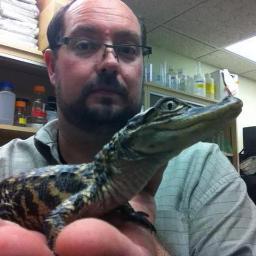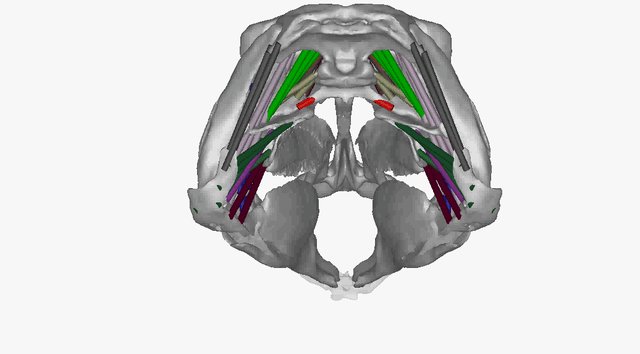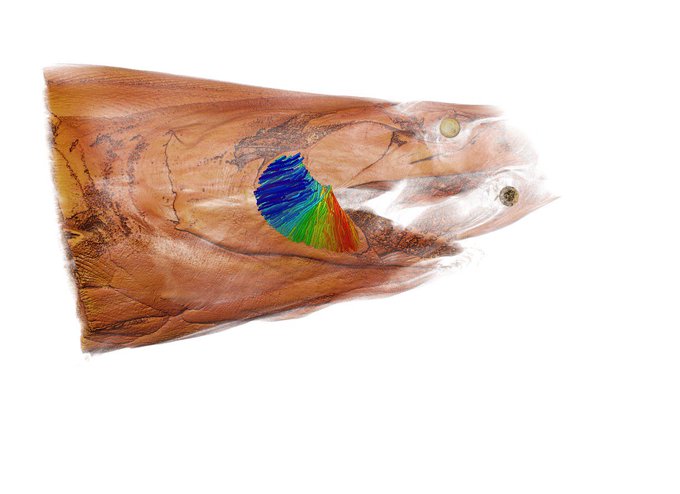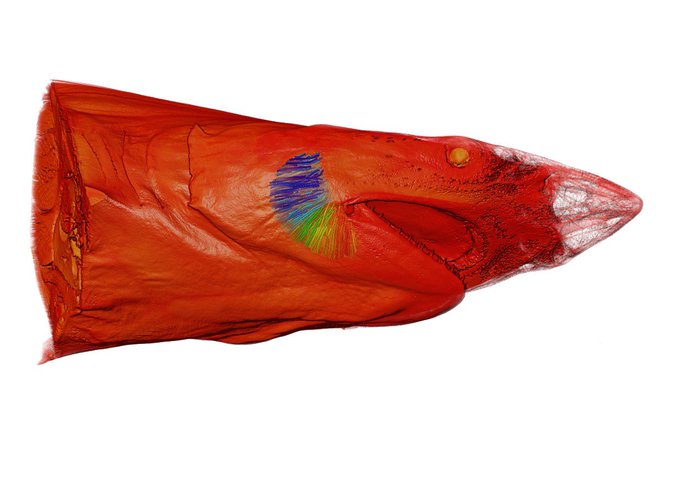Eopneumatosuchus is one of many croc species found in the Early Jurassic Kayenta formation of Diné lands. Paleontologists are working more closely with the Diné leadership to better acknowledge the history of the land these fossils come from and collaborate with the local people.
@Ninjemys We'll see more of one of the gharials in the study soon.
When we first imaged "Louise" (TNHC 11000, housed at @UTAustin) with the help of @nalusafalaya, Kenny Bader, @TexasVertPaleo, and @UTexasCT, one of the most striking features was this crazy nose.
#Croctober continues: a Masson's trichrome-stained parasagittal section through the jaw joint of a still developing Alligator embryo. I collected these data with the help of @VickaryousLab and @AnatomyOrg
traveling research fellowship all too long ago. Glorious stuff.
For @BrianEngh_Art who I'm sure will appreciate the ghostly feathers enshrouding the skull of this dinosaur-billed duck.
Today I got to learn all about the Lovecraftian, Paleozoic Shelled Anemone-like animals called Conularrids. Congrats to April and thanks for having me @smjacquet and @MizzouGeology! https://t.co/ttTLz0dXYN
Along with colleagues at the @brookfield_zoo we've been finishing up a project trying to 'see' the tongue using iodine contrast CT. This is a draft image showing the muscle fibers of the tongue registered with a 3D model of the skeleton.
Here's a view of the still-to-be-finished Multibody dynamics model of the fantastic @MuseumofNature Edmontosaurus with my 3D Eddie pals circa 2012. Was there mandible roll? was there palatal movement? both? neither? #FossilFriday
London Bales’ UG Pandemic senior project is taking form. 🌈 🦈 💀 @MizzouBiology @AnatomyMizzou
Guided by Henry's illustrations, the morphology, along with phylogenetic analysis shows that sauropods evolved giant articular cartilage caps good at resisting compression; while theropods expanded the femoral 'head' to deal with compression and shear.













